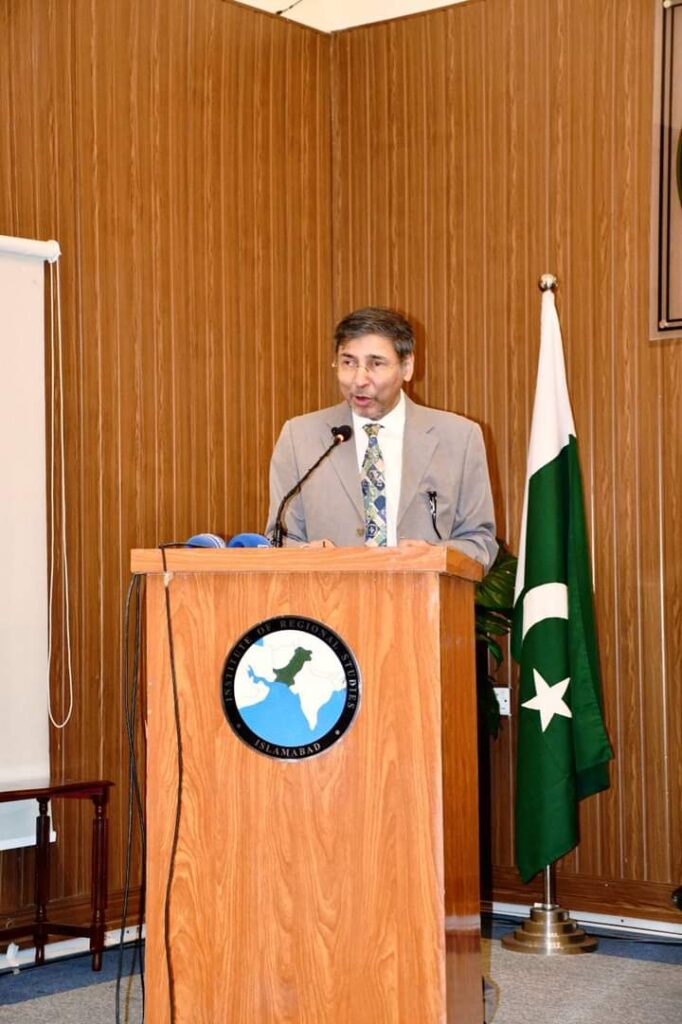
Islamabad – During a round table discussion on recently concluded elections in Illegally Indian Occupied Jammu and Kashmir (IIOJK), held at the Institute of Regional Studies, eminent speakers shed light on the intricacies of the sham elections held recently and the broader implications for IIOJK ‘s future.
Maryam Mastoor, research analyst at Institute of Regional Studies introduced the topic highlighting reorganization Act of 2019, whereby much of the executive power is with the Lieutenant Governor of IIOJK, appointed by the Center, hence the role of Chief Minister and the sham assembly has become merely ceremonial.
Ambassador Jauhar Saleem, President of the Institute of Regional Studies emphasized that despite a multilayered control of India, through illegal legislation and intense military presence, the people of IIOJK have voted to voice their protest and defiance — in the farcical assembly elections in IIOJK— against oppressive policies of the BJP.
Prof. Mujeeb Afzal in his detailed remarks noted that BJP was not interested in governing the people of IIOJK, but rather was bent upon promoting a Hindu centric agenda. “Therefore the sentiment in the Muslim majority Kashmir Valley is to defeat BJP,” he emphasised. He also felt that discontent over BJP’s anti. Muslim policies, and issues such as unemployment and security were major concerns of the people of IIOJK.
Kashmiri leader Altaf Hussain Wani emphasized the importance of preserving Kashmiri identity amidst the pressures of political hegemony. “The fight isn’t just about the number of voters; it’s about ensuring our voices are heard and our rights are preserved,” Wani remarked.
Dr. Waleed Rasool, drawing attention to the evolving nature of political leadership in occupied Jammu & Kashmir, underscored that genuine leadership must confront military control of India and advocate for the right of self determination.
In his concluding remarks, President Institute of Regional Studies called for continued engagement with the Kashmiris in IIOJK and carrying forward informed dialogue on the evolving sutuation. “This conversation is important for the future of millions of Kashmiris.”